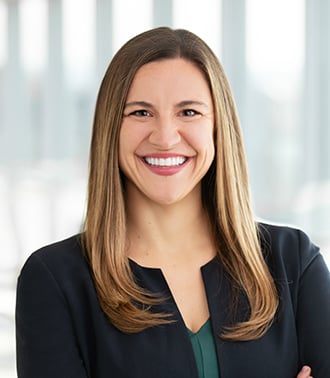Kicked Out! First Circuit Applies Its New But-For Causation Rule To Affirm Dismissal of AKS Case
As readers of this Blog know, we have long followed the relatively recent line of circuit court decisions requiring that plaintiffs show that an alleged kickback was a but-for cause of an allegedly false claim. We most recently covered a First Circuit decision, where the First Circuit adopted the but-for causation standard. Since courts of appeals have adopted the but-for causation standard, we have seen cases dismissed by district courts for plaintiffs’ failure to plead sufficient facts under Rule 9(b) on causation.
Just before the Fourth of July holiday, the First Circuit dealt a blow to another FCA case premised on alleged kickbacks for a plaintiff’s failure to meet the but-for standard in its pleadings, which had been articulated in the First Circuit’s opinion in U.S. ex rel. Flanagan v. Fresenius Medical Care Holdings, Inc. In Flanagan, the relator alleged that a dialysis company provided various financial incentives to hospitals and physicians to engender referrals to its clinics. The district court dismissed the case with prejudice on a number of grounds, including the relator’s failure to plead causation with particularity under Rule 9(b) (as well as dismissing some claims under the public disclosure and first-to-file bars). On appeal, the relator raised only the Rule 9(b) issue and the district court’s denial of its motion to amend.
The First Circuit stated that its recent decision establishing but-for causation in United States v. Regeneron Pharms., Inc. controlled the 9(b) issue, which the relator conceded. The Flanagan court then tackled the relator’s argument that he met that standard by pleading sufficient details regarding one physician whom the defendant hired as a medical director (the relator focused only on this physician in its appellate briefing and not its allegations as to the other alleged kickbacks). Although the relator pleaded that the doctor was a “critical” medical director and that he referred 60 patients to defendant’s clinics, the court found an absence of causation allegations in the complaint. In particular, the court stated that “[t]here are no allegations that [the doctor] would not have made these referrals had he not been given the medical director position.” Nor did the relator provide any other details that would “have allowed us to reasonably infer in his favor that causation exists.” Therefore, the allegations in relator’s complaint “do nothing to tell us whether [the doctor’s] referrals resulted from the alleged kickback scheme,” so the relator’s complaint failed the but-for causation standard.
The court also found no abuse of discretion in the district court’s denial of the motion to amend the complaint, which had been filed in 2014 and could have been amended earlier. The court rejected an argument that relator needed certain claims information (that he did not receive until after the motion to dismiss was granted) to amend his complaint, noting that “he has not provided the court with any information as to … why this claims information was needed to plead causation.”
The Flanagan case continues the trend of courts putting teeth into the causation requirement for FCA cases premised on alleged kickbacks. No longer can plaintiffs simply allege a kickback and then assert that claims or referrals followed. As the Flanagan court stated, “further details” about actual causation are necessary to get beyond a motion to dismiss. At Qui Notes, we will continue to monitor this issue.
© Arnold & Porter Kaye Scholer LLP 2025 All Rights Reserved. This Blog post is intended to be a general summary of the law and does not constitute legal advice. You should consult with counsel to determine applicable legal requirements in a specific fact situation.

